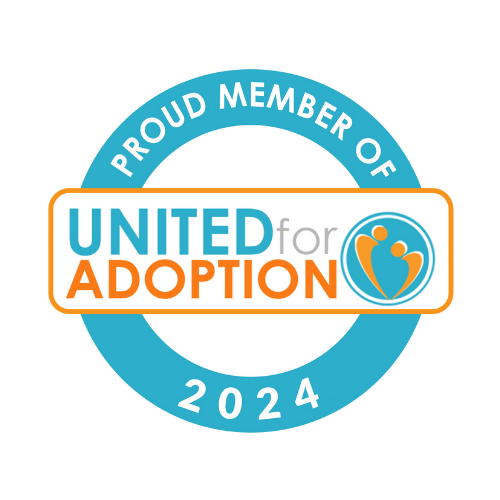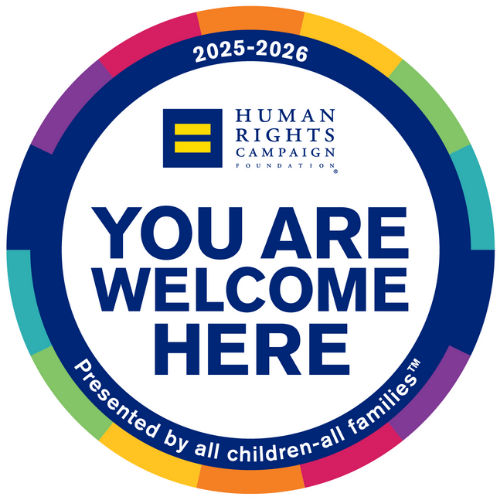Box Elder News Journal
Claire Thornock-Brazelton
Features Editor
At first thought, five teenager daughters under one roof can sound quite daunting and down right crazy. But the love and laughter that generates in the Bartz home diminishes most of those feelings the second they open their door.
In celebration of November being National Adoption month, Richard and Anisa Bartz of Brigham City shared their story of adopting their five daughters, Olyvia, Deja, Trinity, Dezire and Staysha through the Utah Foster Care system.
“Adoption is just a word,” stated Richard. “I don’t look at these girls like they are adopted because they are my family.”
Richard and Anisa’s journey began after they had their first children, Arissa and Terron, and wanted to continue building their family. “I have always wanted a big family, but once we had our boy and girl I was good with that, and decided to go other means,” Richard said.
Anisa continued, “I just feel that the more the kids the better.”
The Bartz started their process of growing their family through a program called Proctor Care. This is a similar program to the foster care system, yet is geared more toward children that have had trouble in juvenile court compared to children whose surroudnings and lifestyle led them to be removed from their home.
“We were in the Protor program for about four years and we had many boys come through our home but when our daughter reached the age of 11 or 12 we felt more comfortable helping girls in our home,” explained Richard. “That is when we decided to get licensed with Foster Care and we have been doing it for about eight years now.”
Anisa said that her and Richard decided to do sibling group through foster care because they wanted to keep children and families together rather than separating them. “There are so many people in foster care that just go for single children or babies, but we felt strongly that there are teenagers out there that don’t have homes and live out on the street and that they need our help. I have always gotten along better with teenagers than young kids, and if I had a bigger house with more space I would adopt more.”
Not only is the need for homes for teenagers in foster care why Richard and Anisa foster teens, but they also are the owners of Great Danes. “We have four Great Danes and they are like our babies to us,” said Richard. “The dogs are our lives and we felt that if we fostered young children and babies that they would fear the dogs and also could be harmed by them.”
Both Anisa and Richard credit their ability to be able to raise these girls by the support and their family. “My mother is one of the greatest supports that we have; she is an inspiration and an awesome grandma to each of these girls,” explained Richard. “We just have such a wonderful support group from our family and neighbors and we are so thankful for them.” Anisa added, “The girls work really hard to make sure that they try to get a long and to be happy with a great sense of humor, that they also help us to make this all work out. They are awesome girls and I am so glad we have them.”
Choosing to foster and eventually adopt each of these girls was a family decision. “When we decided to start the foster program, we asked our children Arissa and Terron if they were okay with it; together we decided it was something we wanted to do. And with every situation that has arose in the past years, any child that is in our home is included in the decision making because it involves all of us,” said Richard.
Each girl in the Bartz home brings their own unique personality to their family. Between the five girls, there are two sets of siblings: Trinity (17) and Staysha (16), and Deja (13) and Dezire (15) and then Olyvia (16) who holds her own. Each were fostered with the Bartz and between January of 2008 and and August of this year, and each have been legally adopted.
Though from different backgrounds and races, the girls do have all one thing in common; their parents.
“To me, being adopted means freedom,” stated Olyvia who had been in the foster care system for many years and through many homes and families. “My parents are willing to let me make my own decisions and learn from them, they don’t say I have to do this and I have to do that. Having a family and parents who care about me is freedom.”
Trinity shared a similar feeling toward adoption. “The Foster Care system has so many rules and regulations that we really can’t do anything. But once we were adopted our parents still have rules, but less than that of foster care.”
Deja added that “being adopted makes me feel safe.”
Anisa described that we must embrace who the child is so that they do feel safe and at the liberty to make choices. “When you adopt a baby or young child, they don’t have a background or their life already set; but teenagers come with history and they have their own personalities and I feel like we are here for them to help them figure out who they are and to give them life guidance. It it hard to connect with a teen, but it can be done.”
Since the teens come from different backgrounds, they also come from varied religions. Richard and Anisa make sure that each girl is able to still practice what they believe in.
“We have a wide range of religious beliefs in our home and thankfully we have friends and neighbors who are willing to take each girl to the church of their choice,” Anisa said. “We aren’t here to push a religion or lifestyle on them; we are here to guide them and let them be themselves.”
The family likes to call themselves the BMW’s (blacks, mexicans and whites) because even though they are different color, they are still each others family.
“The girls do try hard to get along, but they argue with each other, but what family doesn’t?” stated Anisa. “What’s crazy is how the biological siblings argue more with each than with other siblings.”
The girls had some advice for families who are wanting to participate in foster care who may want to foster teenagers.“It can be scary at first because of teenagers come with backgrounds and personalities, but people need to learn to dig deeper—even beyond what the case worker tells you— because there is always more to us than what’s on the outside,” said Olyvia. Trinity added, “Instead of freakin’ out about the situation, just look at it has an opportunity to get to know the person thats there.”
Richard and Anisa also shared advice for parents who are interested in fostering or even adopting teenagers.
“Try to make things happy, and make light of whats going on around you. Make sure to have fun together and remember that laughter is a huge part of happiness,” stated Anisa. Richard also commented, “Its an emotional, spiritual roller coaster,” joked Richard. “ But the blessings that come from raising these girls outweigh all of that. It’s never quiet around here but we wouldn’t want it any different.”
November is also a time to reflect on being thankful and the girls gratitude toward their parents showed through their actions and words toward them.
“When I was first adopted, I had a really hard time letting go of my past and got into some trouble and so then I was taken out of the home and was sent to group,” explained Dezire. “I was able to come back once I graduated from the group, but I realized that I didn’t know what I had until it was gone and I now I know that I need this family; I need my sisters and my parents.”
Staysha also commented on needing her family. “I love my adopted parents because they have opened their door to me and let me and my sisters be ourselves and they accept me for who I am.”
Brenda Durtschi, the area representative for Utah Foster Care, was present during the conversation and stated “Many people take for granted the youth that are in foster care and look at them differently. But people need to realize that when they foster a teen, that what you see is what you get; you know about their backgrounds and what you are going to be dealing with. Teenagers need the guidance care and safety just like any other child.”
Utah Foster Care is a private, non-profit organization contracted by the Division of Child and Family Services (DCFS) to find, education and support foster and adoptive families to care for the children in Utah’s foster care system.
In Utah, there are 2600+ children in foster care at any given time and more than 1400 licensed foster/adoptive families in this state. Last year, 539 children in Utah were adopted from the foster care system and mostly from their foster parents.
For more information about Utah Foster Care, visit www.utahfostercare.org or call 1 (877) 505-5437.






